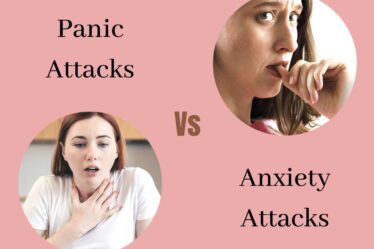
Mental well-being refers to a state of being in which an individual has a sense of satisfaction and fulfilment in life, and is able to function in a healthy and productive way. It involves having a positive outlook, being able to cope with stress, and having a sense of control over one’s life. Good mental well-being is important for overall health and happiness. There are various factors that can affect mental well-being, such as physical health, social support, and environmental factors. In this article, you learn about Ways to Improve Mental Health.
What is Mental Wellness?
Mental wellness refers to a state of being in which an individual is able to cope with the normal stresses of life, work productively, and make a contribution to their community. It involves having good mental health, which includes feeling emotionally and psychologically healthy, and having the ability to think, learn, and communicate effectively. As we navigate life, it influences our thoughts, feelings, and behaviours. It also influences how we relate to others, handles stress, and make decisions. From childhood and youth to adulthood and ageing, mental health is crucial at every stage of life.
How important is mental wellness?
The following are some benefits of having good mental health:
- The ability to handle life’s hardships
- Maintain a healthy body and positive connections
- Give back to your community in a significant way.
- Working effectively
- Fulfil your potential.
Also Read – Five tips to improve your child’s mental health
How can I improve my mental health? Ways to Improve Mental Health
There are several things you can do to improve your mental health. Some of these include:
Face-to-face social interaction refers to direct communication and interaction between individuals who are physically present with each other. This type of social interaction allows individuals to communicate and connect with one another through verbal and nonverbal means, such as body language and facial expressions.
Keep moving.
Being Physical activity can also help reduce stress, improve mood, and increase feelings of happiness and well-being. Engaging in regular physical activity can be an important part of maintaining overall health and well-being. Top of Form
Speak with someone.
It is important to connect with others and speak with someone about your thoughts and feelings. This can provide support and help you manage stress and improve your mental health. Strong social connections can provide support, reduce stress, and improve your mental health.
Invoke your senses
Do you find yourself relaxing listening to uplifting music? Squeezing a stress ball—does it make you feel more grounded? What about going for a stroll through the woods and taking in the sights and sounds of the trees? Everyone reacts to sensory input a little differently, so try different things to see what works best for you.
Start a meditation routine | Ways to Improve Mental Health
Deep breathing, yoga, mindfulness, and meditation can all help lower stress levels and Improve Mental Health.
Also Read – How to Find Joy in Life | 7 Habits to Add to Your Routine
Prioritize downtime and reflection.
We’ve all been able to be accused of being “too busy” to relax, yet downtime is essential to our emotional and mental well-being. As you go about your day, take time to unwind, reflect, and focus on the good things, even the little ones. Put them in writing if you can because it’s easy to forget. Think of them later if you need to improve your mood.
Eating a healthy, balanced diet to promote good mental health.
Leafy green vegetables: Leafy greens, such as spinach and kale, are rich in vitamins. Fish, particularly fatty fish like salmon, are rich in omega-3 fatty acids. Berries, such as blueberries and strawberries, are packed with antioxidants and vitamins that can support brain health. Nuts and seeds, such as almonds and chia seeds, are rich in healthy fats, protein, and vitamins that can support brain health. Whole grains, such as oats and quinoa, are a good source of complex carbohydrates and fiber, which can support brain health and improve mood.
Refrain from using alcohol and other drugs
Refrain from using alcohol and other drugs. Alcohol and other drugs are occasionally used as “self-medication,” but they actually worsen issues.
Get enough sleep.
More so than you might imagine. The best way for our bodies and minds to regenerate is through sleep. Take a break from screen stimulation hours before night to improve your sleep quality. Adequate sleep is important for both physical and mental health.
Look for meaning and purpose.
Finding meaning and purpose in life can be an important part of maintaining good mental health. Having a sense of meaning and purpose can provide direction, motivation, and fulfillment in life. It can also help you cope with stress and challenges, and provide a sense of belonging and connection to something larger than yourself. There are many ways to find meaning and purpose in life, such as:
- Identifying your values and interests.
- Spend time and money on your connections with the individuals that matter to you.
- Participating in volunteer work can improve your life and make you happier.
- Taking care of others may be both difficult and rewarding.
- Reflecting on your experiences.
If you are struggling with mental health issues, it can be helpful to speak with a mental health professional, such as a therapist or counsellor. They can provide you with personalized advice and support to help you manage your mental health. Top of Form
Frequently Asked Question – Ways to Improve Mental Health
Ans.- Natural elements, such as brain chemistry or DNA. Experiences with trauma or abuse in life. A history of mental health issues in the family. Your way of life includes your food, exercise, and drug use.
Ans.- The majority of scientists hold that issues with neural communication in the brain are what cause mental illnesses.
Ans.- Positive feelings and efficient functioning are indicators of excellent mental health (in both individual and social environments).
Ans.- It won’t usually get better if you attempt to treat a mental illness on your own without receiving professional care.
Ans.- It is more difficult to treat mental illness the longer it persists, and it will not go away on its own.



